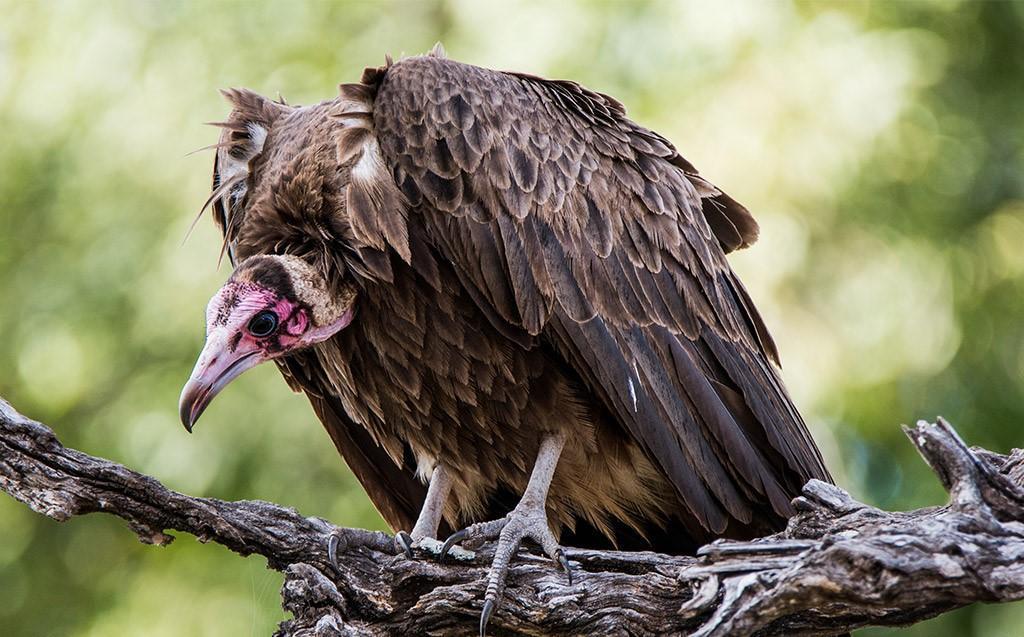Africa-Press – Ghana. Vultures are a large bird with wide wings of prey known for scavenging on carrion (dead animals). They belong to a scientific group of birds called Cathartidae, a Greek word for purifier.
Though not edible, they play a vital role in the ecosystem by cleaning up carcasses and reducing the spread of diseases.
According to the experts, there are about 22 recognised species of vultures, divided into New World Vultures which are found mostly in the Americas and Old World Vultures, which are found primarily in Europe, Africa and Asia.
Many of the species have bald heads and necks, which helps prevent the spread of bacteria when they feed on carcasses.
Vultures are expert fliers, using thermals to soar at a high altitude for extended periods allowing them to spot carcasses.
They possess excellent eyesight to spot carrion; they have a keen sense of smell to locate food.
By consuming decaying matter, they act as natural clean-up crews preventing the proliferation of diseases and improving hygiene.
According to a researcher, Alex Cooper, once a common sight, the African vulture have suffered considerable loses in recent years, nowadays several species are endangered.
He noted that vultures do not capture people’s imagination like many of Africa’s iconic creatures, and it is not hard to see why.
They are not the most attractive birds and have a close connection with death.
Cooper stated that perhaps they should be celebrated more because vultures play an integral role in the ecosystem, functioning as nature’s garbage disposal teams. Without these bald birds cleaning-up carrion, disease would spread, affecting all other animals including humans.
Ho, the regional capital and its environs used to be a habitat for many vultures.
On Ho market days, one could see vultures, all over the market “fighting” one another for carcasses and rotten fishes.
They could also be seen in large numbers at slaughterhouses and on refuse dumps in town.
The observation could attest that, for some time now, not a single of this “natural clean-up crews” could be found in the enclave.
Mr. John Parker Atinga, Manager of the Kalakpa Resource Reserve in the Region, could not leverage possible causes of the disappearance (extinction) of the vultures, when contacted.
He stated that the extinction of the hooded vultures which he said are mostly found in Ghana could be due to loss of habitat.
The Manager said human activity due to urbanisation has destroyed the big and tall trees on top of which they made their nests and laid eggs to reproduce.
He said that their extinction could also be due to possible poisoning, adding that there could be other factors which they are yet to unravel.
Mr. Atinga noted that vultures are not only “sanitary inspectors” they also warn people of the presence of carnivorous animals and impending danger if one sees them atop trees in large numbers in the forest.
He said another attribute of vultures are finding missing people, who have died in forests.
Researchers say the Mole National Park may serve as a last stronghold for these species in Ghana, particularly the white-headed vulture to nest and reproduce.
Between 2020 and 2022, the researchers spent 31 days in Mole National Park searching for vultures and covered some 761 square kilometres on foot and trucks.
They estimated populations of 29 to 36 hooded vultures, 25 to 73 white-backed vultures, and only three or four white-headed vultures.
Critically, they found six hooded vulture nests but could not spot Africa’s fourth critically endangered vulture species.
In Ghana and across West Africa more broadly, vulture population have been decimated by poisoning, hunting of their eggs, persecution or poaching for what scientists termed “belief-based use.”
According to Samuel Boakye Yiadom, a graduate research associate with the International Bird Conservation Partnership, all these factors are causing the decline of these vultures in Ghana.
Joseph Akwasi Afrifa also noted that vulture population across Africa including Ghana are rapidly declining due to illegal hunting, illegal trade, illegal killing, habitat loss and poisoning.
He said although the West African Vulture Conservation Action Plan (2023-2043) emphasise research, education and population monitoring as critical interventions, systematic research and active community engagement remained limited in these areas, where relatively large populations still thrive.
Mr. Atinga suggested that to help conserve not only the vulture but also other animal and bird species, “we should be intentional in the conservation of our forest covers and also take tree planting seriously.”
He stated that there should also be an intensive education on the important roles animals and birds play in the lives of human beings and the environment adding “this education should begin in all schools across the country.”
“We are duty bound to protect and conserve these animals and not only for ourselves but also for posterity,” the Manager noted.
If truly vultures are “nature’s garbage disposal teams,” “sanitary inspectors,” and “natural clean-up crews” that clean up, this carrion to avoid the explosion of diseases, then their extinction, not only in Ho, but the country and Africa should be a worry for all.
What makes the extinction of vultures worrisome is the fact that they could not be raised like poultry and released into the environment as the vacuum being created negates a crucial component to the ecosystem with researchers breaking their heads to solve.
Source: Ghana News Agency
For More News And Analysis About Ghana Follow Africa-Press







